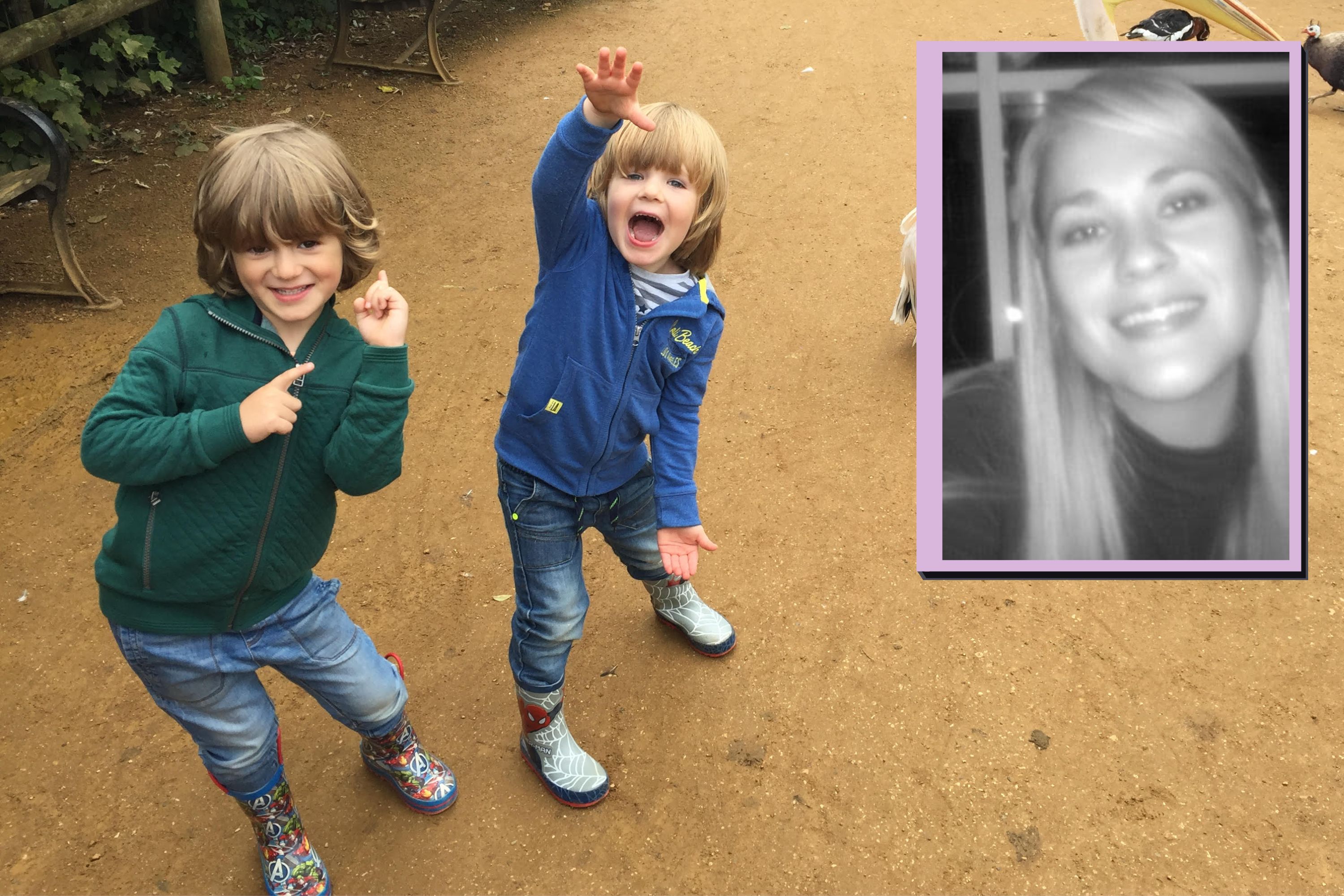10 common struggles for introvert mums (I should know, I am one)
For introverts who happen to be parents, the struggle is real


I didn't realise being an introvert would make parenting so hard - I'm sure other introverts will recognise the common struggles we share. I also spoke to a psychotherapist about the difficulties of being a mother and an introvert, who shares some helpful advice.
Becoming a mum made me realise that I am actually an introvert, and my social awkwardness and innate shyness weren't traits that I'd grow out of, they were just who I was... and who I was made parenting feel so much harder.
As an introvert, I realised I felt so much more comfortable focusing on my inner thoughts and ideas, rather than what was happening externally, but as a parent I very much had to focus on what was happening externally and it felt like a battle everyday.
I didn't realise I always consciously sought seats at the back of a busy room where I couldn't be seen, and this was attributed to being introverted. I didn't twig that having a baby that made constant noise and needed undivided attention would be impossible to get alone time from - this is totally the other end of the scale from my child-free life where I simply removed myself from noise if it got too much.
It's only now, as a mother of an 11 and 10-year-old, I just didn't see for a long time that I was an introvert and really needed to adapt my surroundings when I became a mum.
I spoke to BACP-accredited therapist Charlotte Monk about this unique and challenging aspect of parenthood. Charlotte tells me, "It’s worth reflecting that all people have times in their lives where they feel more extrovert and more introvert - this is normal! Having children is one of the biggest changes a person goes through: the sleep deprivation, innate mum-guilt, anxious or intrusive thoughts, free time, loss of routine and a change of self-image all contributes to how social you may be feeling."
She adds "It’s important to give yourself a break - sometimes the best thing you can do is cuddle up on the sofa and chill out with your kids. Other times, you will really be up for a coffee and play date - listening in to and respecting how you are feeling is really important."
Parenting advice, hot topics, best buys and family finance tips delivered straight to your inbox.
Below is my list of the main struggles I've muddled through as an introverted mum. Although it's easy to look back on them with some humour, these challenges can feel very real to those who might recognise them too.
10 common struggles of an introverted mum
1. You feel trapped by the noise of your baby
It's finally happened - you got through a pregnancy that felt like it took for ever, given birth, and you're handed your brand new bundle at last. You know your child will cry, and you know there will be chaos. But, especially if you're yet to identify yourself as an introvert, you just don't realise how much the constant noise will put you on edge.
The anxiety of the looming 6pm 'witching hour' (which is an absolute lie, because it often goes on until way past 10pm or longer,) is simply something you feel you can't cope with. As someone who is not only introverted but also terrified to ask for help, I felt constantly overwhelmed and like I was drowning. The good news is, once I finally worked out my baby's tiredness clues (which I missed FOR WEEKS and made things worse,) I finally got some snatched moments to recharge my batteries. Eventually.
2. Even your child sleeping on you can feel overwhelming
I wanted my baby to sleep on me - I hoped for it. But those were the dreams of a person not experiencing an introverted mothering meltdown. I say I eventually got snatched moments to recharge myself when my baby was sleeping, because he didn't sleep in his own cot until he was eight months old.
He took every nap on me meaning I couldn't do anything as simple as make myself a drink. He also slept on me at night until I tried the seamless transfer to the Moses basket - around 1847 times before there was any success, and usually not before 1am. My dreams of being the natural, babywearing mother flew out the window, because I didn't know my introvert body would need plenty of time without anyone touching it.
"I wanted my baby to sleep on me - I hoped for it. But those were the dreams of a person not experiencing an introverted mothering meltdown."
3. You want to leave the house, but you also don't
I wanted my baby to socialise with other babies, and I wanted to see other parents. Except, the thought of entering a room full of strangers at a baby group, being accosted to introduce myself, and the chorus of 20 screams made me want to run and live in a cave for the remainder of my days. It's quite the introvert conundrum. I began with an exhausting schedule of baby yoga, baby sensory, baby cinema - anything with 'baby' in front of it, I dragged myself there because I thought that's what a 'good' mum would do.
Positioning myself in the room at the back was a priority - I might occasionally seek out 'safe' people to chat to and venture slightly closer to them if I felt up to it. At the end of any session I'd be first out the door in case anyone asked me to go for a unplanned coffee date that I'd be unable to say no and would add to my total and utter overwhelm.
Charlotte Monk tells me "If you’re an introvert, parenting can sometimes feel overwhelming and stressful. You may worry that your children won’t get the same benefits of playing with other children because you don’t enjoy spending lots of time with lots of parents. You might worry about social interaction and how you will feel. And you might also be cautious that others are judging you."
This is all true, and I eventually found a nice little parenting crew to run with, and coffee dates at each other's houses diminished the fear of too much noise and chit chat. It also meant a quick escape without feeling like I needed to crawl out of a baby group ninja style to avoid detection and the horror of being asked why I was leaving.
4. Having a second child might be harder for introverts
I say 'might,' because of course, this isn't a given experience, but certainly was for me - and I was totally unprepared for it. We made the possibly ill-advised decision to have two children close together. It seemed like a lovely idea at the time. However, that meant I was pregnant and had an existing child still sleeping on me for most of his naps, who still didn't really have a routine. My body and mind had still not fully adjusted to matrescence, or the process of becoming a mother.
That meant I went into motherhood round two, with a fully empty cup and depleted soul. And with what was essentially two babies thrown into the mix, there was of course double everything - noise, nappies, and the need to get out of the house for everyone's sake. Although many factors contributed to the eventual postnatal depression I developed, I believe not managing my own needs as an introvert was high on the list when I had a second child.
Loop earplugs from £19.95 | Loop earplugs
Noise muffling earplugs for deeper focus and calm, drowning out unwanted noise when you need it most.
5. You hide in the toilets when your child starts school
Well, you might not have done this, but I'll allow you to laugh at the fact I did. I dreaded my child starting school, not only because I was being forced to go to a noisy place twice a day where I didn't know anyone, it also looked liked my eldest was going to be a bit of an introvert too - I was so worried for him. I felt so intimidated by the other parents, that if my son ever needed the toilet before class, I'd just accompany him there and hide until the corridor emptied out like any other reasonably terrified (possibly unhinged) person before making an exit.
To avoid other introverts thinking they too need to busy themselves in horrifyingly filthy spaces filled with the urine of 1000 unhygienic small people - you don't. All it took was for one kindly parent to say while I tried to rapidly exit the school one day, 'do you want to join our team for the school quiz?' and you could be sorted. I have now quizzed for seven years with the same people, and also enjoyed Christmas parties, big birthdays, and plenty of other fun with those same people who get my character.
Charlotte Monk agrees with taking your time as an introvert to find the right crowd. She tells me "Your vibe will find your tribe! Once you have connection with likeminded people, it is easier to negotiate the world of socialising with an introverted personality.
Quality over quantity is a real thing in friendships - one or two close friends really are enough. Environments also affect how we feel when being social too - try picking a nice quiet play space which caters to a smaller age range over a loud exuberant soft play, or a peaceful park over an busy amusement centre."
6. You'd rather set yourself on fire than help at school events
It's not that you don't want to help, you really do. I loved the buzz of school events and how my children looked forward to them and joined in with them with gusto. I enjoyed attending them (while scoping out places to go for a moment of quiet and a plan of the exits in my head like a health and safety officer.) But the constant emails asking for parents to sign up to help with absolutely gave me acute anxiety.
The thought of standing at a stall and having to smile, nod and make small talk with everyone who came along was the introvert stuff of nightmares. Plus, if you're quite bad at maths like me, there's added pressure that comes alongside occasionally unwarranted chit chat - the possibility of being stared at by infant school children wondering why you're struggling to give them change from the fiver they just handed over, which should be easier than reception maths.
7. You don't mind planning your child's birthday parties, you just don't like attending
That goes for any birthday party, actually. For most of my eldest's reception year, I had to get my husband to attend all the parties where parents needed to stay - as only lunatics would agree to take charge of 30 reception kids hyped on cake and party food, that was pretty much all of them. The drop-and-run parties that came later were absolute life-savers.

Finding quiet joy in cake decorating as an introvert - just not attending the party
I loved the quiet parts of party preparation - curating thoughtful party bags and planning the cake with my children then doing everything to get it just right. Having never baked in my life before, I found that although I was actually terrible at making sponges (thanks Nana, queen of the Victoria sponge for stepping in,) I was actually good at decorating them. I loved the quiet, the concentration, and the joy I got from sitting quietly decorating before the onslaught of the actual party.
8. Your extrovert child will constantly surprise you
Although I had concerns about my eldest, he's quiet but not as painfully introverted as me. My youngest on the other hand... If you're looking for a living, walking definition of extrovert - I'll just bring you to meet him. He dives into any situation or activity head first, without fear. From the age of three he could walk into a room and be friends with everyone in it in seconds. I constantly marvel at these skills he has that we can be 100% sure don't come from me.
In fact, I envy him. It's a strange feeling to envy the qualities of a 10-year-old child you birthed, but I always think life could be easier if I could've been born like him - what made him that way and not me? Anyway, an extrovert child brings a certain set of challenges. He needs to be out and about ALL THE TIME, thriving on meeting new people and being the ultimate socialite. Basically, the complete opposite to me. It's a struggle to find a balance for us both.
Charlotte Monk shares her advice, telling me "Take time to recognise your children’s needs alongside your own needs. Self-care is vital to fill your cup so you have enough energy to give to others. If your children are extroverts then consider play dates at friends’ homes, clubs to join or time to let them run wild outside.
If they are introverted too, think about the activities you love to do together. All in all, filling the self-care bank creates wellbeing and holding awareness of what drains or charges your and your children’s batteries is key."
9. You'll be constantly out of your comfort zone
I think this is why I became acutely aware of my introvert status when I had children. Before they came along, there was infinitely more time to get time alone, and I could easily set up my work situation to factor in moments of freedom from things I found overwhelming. In this carefully managed existence, you hardly ever step out of your comfort zone and can find plenty of reasons not to.
"When much of life isn't about you anymore, these brand new situations pour in and you feel waterboarded by them."
When much of life isn't about you anymore, these brand new situations pour in and you feel waterboarded by them - an unstoppable fountain slowly drowning you until you're noting more than a shadow of your former self being washed away by people and playdates. Well, not quite that dramatic, but just to set the scene. This time of life comes with an obscene need to do everything you can to protect yourself while every situation you find yourself in feels unnatural.
10. You'll constantly feel you've failed your children
But you absolutely haven't. There's plenty of ways mothers feel they've failed their kids, most of which are set up by society and don't mean anything like failure - birth choice and breastfeeding to name a couple that are just a drop in the ocean. When you're an introvert, the added level of difficulty of engaging with your children and struggling to take them everywhere they want to go, can be gut wrenching.
Charlotte Monk suggests adding this guilt to parenthood is futile - everyone has some sort of difficulty and it's all relative. She tells me "Bear in mind those lovely Instagram snaps of immaculately coiffed parents and children looking fresh and cheerful are carefully selected snapshots of life which often don’t portray the real, amazing, exhausting, sometimes lonely reality that almost all parents face at different points of the journey."
She concludes "You are not alone. Talk to your partner, close friend or a supportive family member to share your thoughts and needs to gather some support. If the struggle feels too overwhelming then therapy can be a great additional support in the world of parenting and can help you to unpick your social world, needs and anxieties whilst also celebrating the greatness of being an introvert!"
Being a parent and an introvert can be difficult, but can actually be a super power. Studies show introvert parents actually create family-friendly environments and are great communicators. Our sensitivity to our own needs means we can be highly attuned to those of our children, leading to deeper connections.
Introverts can be more prone to increased emotional intelligence, meaning once we learn to balance family needs with our own, we can effectively prioritise self-care which we then model to our kids - winning.
For more on traits and parenting styles, reflective parenting is said to be good for introverts, and if you grew up an only child people might think you'll end up an introvert, but these seven traits commonly found in singletons say otherwise.

Charlotte is a relationship and young persons therapist trained to a Masters level, working in private practice and at a secondary school. Charlotte has a passion for neurodiversity affirming, integrative therapy.

Lucy is a mum-of-two, multi-award nominated writer and blogger with six years’ of experience writing about parenting, family life, and TV. Lucy has contributed content to PopSugar and moms.com. In the last three years, she has transformed her passion for streaming countless hours of television into specialising in entertainment writing. There is now nothing she loves more than watching the best shows on television and sharing why you - and your kids - should watch them.
